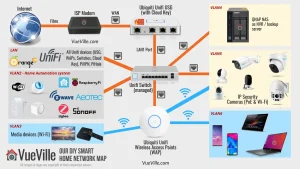Living Smarter: How AI-Powered Home Appliances Are Transforming Our Lives

You know that feeling when your coffee maker starts brewing just as your alarm goes off? Or when your fridge texts you that you’re out of milk? That’s not magic—it’s AI. And honestly, it’s changing the way we live at home, one smart gadget at a time.
The Rise of the Smart Home
Gone are the days when “smart home” meant a programmable thermostat. Today, AI-powered appliances learn from your habits, anticipate your needs, and—here’s the kicker—actually save you time and energy. Let’s dive in.
Why AI? Why Now?
Well, two things happened: First, machine learning got scary good at predicting patterns. Second, we all got tired of juggling a dozen apps to control our lights, AC, and robot vacuums. AI bridges that gap. It’s like having a house that gets you.
AI Appliances That Feel Like Personal Assistants
These aren’t just gadgets with Wi-Fi. They’re proactive, almost intuitive. Here’s how:
- Refrigerators that meal-plan: Scan groceries, suggest recipes, even order replacements. No more “What’s for dinner?” panic.
- Washers that adapt: Detect fabric types and soil levels, then adjust cycles. Goodbye, shrunken sweaters.
- Ovens that don’t burn: Use cameras and sensors to cook dishes perfectly. Yes, even your grandma’s lasagna.
The Quiet Genius of Voice Assistants
Ever yelled, “Hey Google, preheat the oven to 375°” while elbow-deep in flour? That’s the beauty of AI—it works while your hands are full. Voice control isn’t new, but context-aware responses (like suggesting a lower temp for gluten-free baking) are game-changers.
Energy Savings That Add Up
Here’s the deal: AI doesn’t just make life easier—it cuts costs. Smart thermostats like Nest learn your schedule and adjust temps when you’re out. LG’s ThinQ ACs analyze weather forecasts to optimize cooling. Over a year, these tweaks can slash energy bills by 10-15%.
| Appliance | AI Feature | Avg. Savings |
|---|---|---|
| Smart Thermostat | Learns routines, geofencing | 12% on HVAC |
| AI Washer | Auto-dosing detergent | 20% less water |
| Robot Vacuum | Room mapping | 25% less runtime |
The Hidden Perks: Safety and Accessibility
Forget convenience—AI appliances can be lifesavers. Samsung’s AI oven sends alerts if it detects smoke. Smart showers monitor water temp to prevent scalding. And for older adults or people with disabilities? Voice-controlled lights or fridges that track medication are not just nice-to-haves.
A Note on Privacy
Sure, a fridge that knows your snack habits feels… intimate. Most AI appliances now process data locally (not in the cloud) and let you opt out of tracking. Always check settings—your sourdough starter doesn’t need to be an NFT.
Where This Is All Heading
Imagine a home where appliances talk to each other. Your coffee maker triggers your blinds to open. Your air purifier kicks on when pollen counts rise. We’re not there yet, but with Matter protocol unifying smart devices, it’s closer than you think.
That said, AI isn’t about replacing human touch—it’s about freeing us to focus on what matters. Less time stressing over chores, more time for… well, living. And honestly, isn’t that the point of “smart” anything?


